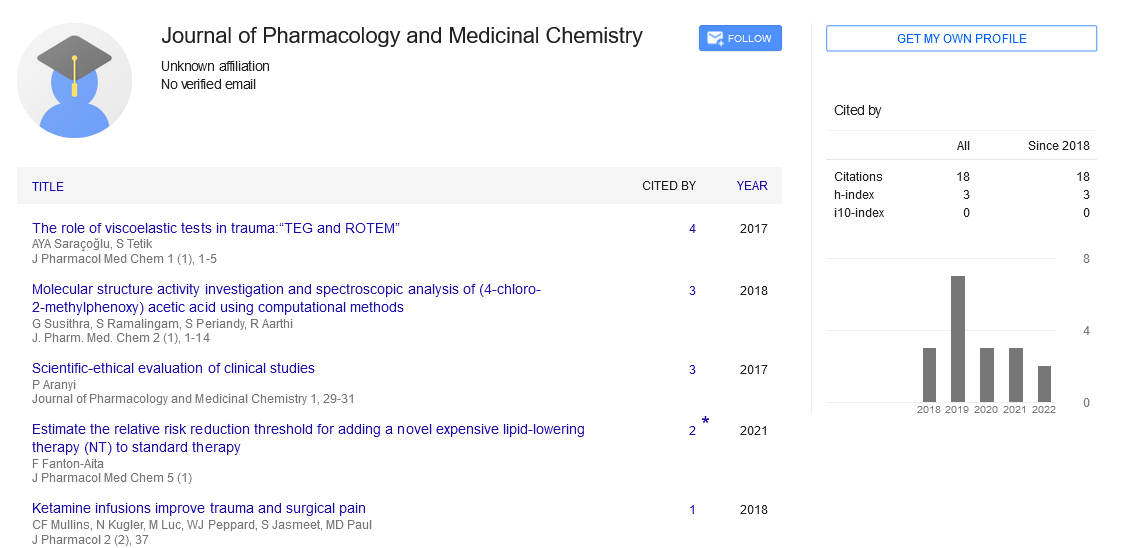
Sign up for email alert when new content gets added: Sign up
The Role of Pharmacovigilance in Oral Cancer Therapies
2nd European Congress on Pharmaceutical Science & Research
February 23, 2022
Ilaria Avallone
Luigi Vanvitelli University Hospital, Italy
Posters & Accepted Abstracts: J Pharmacol Med Chem
Abstract :
In recent years there has been an increase in the number of anticancer drugs available in oral formulations, approved for the treatment of various cancers. Oral cancer therapy brings benefits to both the patient and the healthcare facility, medical and nursing staff costs are reduced, and the workload of the pharmacy is reduced. The oral formulation is preferred by the patient for reasons such as reduced hospital visits, reduced travel time and minimal impact on daily habits. However, therapy with orally formulated cancer drugs is not without its problems, such as increased errors due to selfadministration, reduced patient compliance and toxicities that are not always identified. This work, carried out at an I.R.C.C.S., aims to highlight the importance of reporting side effects in oral cancer therapy. The data were collected by analysing the Adverse Drug Reactions (ADRs), sent to the Local Pharmacovigilance Manager, who entered them in the National Pharmacovigilance Network. Health workers were contacted by telephone to encourage reporting, and through consultation of a database for the management of health care processes, any reductions and/or suspensions of treatment were obtained that were configured as alerts for a report. Results: During the study period, September 2020/July 2021, 653 adverse reactions were entered into the National Pharmacovigilance Network, of which 26% related to oral oncology drugs and 74% related to intravenous oncology therapies. The most reported oral oncology drugs were tyrosine kinase receptor inhibitors (42 %), selective cyclin-dependent kinase inhibitors (27 %), followed by chemotherapeutics with classical cytotoxic mechanism (22%) and various antineoplastic agents of the total number of reports from oral drugs, 25 % of the ADRs are serious and concern tyrosine kinase inhibitors, with adverse reactions such as skin toxicity in the form of skin rash, cardiovascular toxicity in the form of arrhythmia and generalised oedemas, haematological toxicity such as thrombocytopenia, and endocrinological toxicity such as hypothyroidism. Analysis of the results shows that oral cancer therapy is by no means free of side effects therefore it would be desirable to improve patient information in order to increase reporting, with a view to improving compliance and therapeutic adherence.




